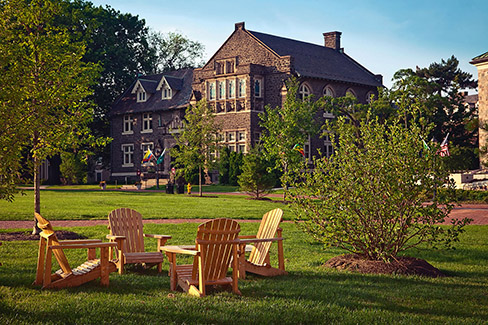Case Study
Lafayette College
Easton, Pennsylvania

Campus Climate Study, 2017
Demographic Perspectives had worked with Lafayette College on student and faculty housing needs and preferences in 2016. Following that effort, Lafayette College approached DP to develop and implement a campus climate assessment for students, staff and faculty that would ensure that the College was identifying and addressing critical issues related to campus community.
Peer Research
Lafayette was facing challenges of changing culture and building community, similar to other colleges and universities, in the areas of engagement, diversity, and inclusion. Numerous studies have concluded that how students experience their campus environment influences both learning and developmental outcomes, and that discriminatory environments have a negative effect on student learning. Research also supports the value of a diverse student body and faculty on enhancing learning outcomes. Climate studies elsewhere have concluded that faculty and staff who consider their campus climate healthy and inclusive are more likely to feel personally respected and professionally supported.
DP reviewed an earlier Campus Climate study from 2010 and summarized findings from climate studies undertaken at 5 peer schools. Note that the topic of sexual harassment was not included in this study as it had been addressed in a study the prior year.
Focus Groups
In the summer of 2017, in collaboration with the Lafayette College team, DP developed protocols for interviews and focus groups. In the fall of 2017, DP held campus meetings and conducted stakeholder interviews with senior and middle management administrative staff, faculty committees, student committees and student organizations; in February 2018, DP conducted 18 Focus Groups with students, both in the general population, and underrepresented student groups; staff, including senior administrative, other administrative, support and operations; and faculty, including tenured, tenure track, not on tenure track, and underrepresented faculty.
Focus Group topics included: Sense of Community / Sense of Belonging; Workplace Diversity / Inclusion / Equity; Recruitment and Retention of Underrepresented Groups; Micro-Aggressions on campus and in classrooms; Informal Social Networks / Silos; Experiences of Minority Groups (race, ethnicity, gender identity, LBGTQI); Safety and Emotional Security; and Campus Communication (including freedom of speech).
Survey
A survey instrument was developed which included questions related to the current attitudes, behaviors and standards of faculty, staff and students concerning the level of respect for individual needs, abilities and potential. Collaborating with the team at Lafayette CoIlege, the survey instrument was finalized and approved. The survey was conducted online in April 2018. The population surveyed included all full-time and part-time students, faculty and staff. Operations staff were also provided the opportunity to complete surveys online or on paper in a designated space.
Actionable Outcomes:
- Transparency of process and outcomes was an important project goal. At the end of the study, the DP team spent three days on campus conducting town hall meetings where they presented the studies’ findings. Every session was well-attended, and Q&A was lively.
- Lafayette designed an internal website containing the study reports from both the 2010 and 2018 climate studies, as well as a statement of the College’s Commitment to a Diverse and Inclusive Community. The website provides an opportunity for members of the community to submit anonymous comments or questions related to the campus climate.
- The College established a high-level committee to develop and prioritize recommendations emanating from the report findings. The committee has representation from faculty, staff, and students, and is ongoing.
To learn more about this case study, contact Demographic Perspectives today.

